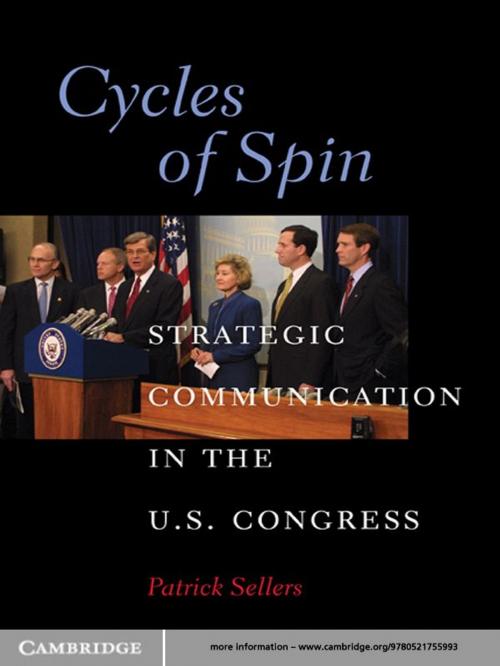Cycles of Spin
Strategic Communication in the U.S. Congress
Nonfiction, Social & Cultural Studies, Political Science, Government, Business & Finance| Author: | Patrick Sellers | ISBN: | 9780511700194 |
| Publisher: | Cambridge University Press | Publication: | October 26, 2009 |
| Imprint: | Cambridge University Press | Language: | English |
| Author: | Patrick Sellers |
| ISBN: | 9780511700194 |
| Publisher: | Cambridge University Press |
| Publication: | October 26, 2009 |
| Imprint: | Cambridge University Press |
| Language: | English |
How do politicians try to shape their news coverage? Sellers examines strategic communication campaigns in the U.S. Congress. He argues that these campaigns create cycles of spin: leaders create messages, rank-and-file legislators decide whether to promote those messages, journalists decide whether to cover the messages, and any coverage feeds back to influence the policy process. These four stages are closely related; decisions at one stage influence those at another. Sellers uses diverse evidence, from participant observation and press secretary interviews, to computerized content analysis and vector auto regression. The result is a comprehensive and unprecedented examination of politicians' promotional campaigns and journalists' coverage of those campaigns. Countering numerous critics of spin, Sellers offers the provocative argument that the promotional messages have their origins in the actual policy preferences of members of Congress. The campaigns to promote these messages thus can help the public learn about policy debates in Congress.
How do politicians try to shape their news coverage? Sellers examines strategic communication campaigns in the U.S. Congress. He argues that these campaigns create cycles of spin: leaders create messages, rank-and-file legislators decide whether to promote those messages, journalists decide whether to cover the messages, and any coverage feeds back to influence the policy process. These four stages are closely related; decisions at one stage influence those at another. Sellers uses diverse evidence, from participant observation and press secretary interviews, to computerized content analysis and vector auto regression. The result is a comprehensive and unprecedented examination of politicians' promotional campaigns and journalists' coverage of those campaigns. Countering numerous critics of spin, Sellers offers the provocative argument that the promotional messages have their origins in the actual policy preferences of members of Congress. The campaigns to promote these messages thus can help the public learn about policy debates in Congress.















